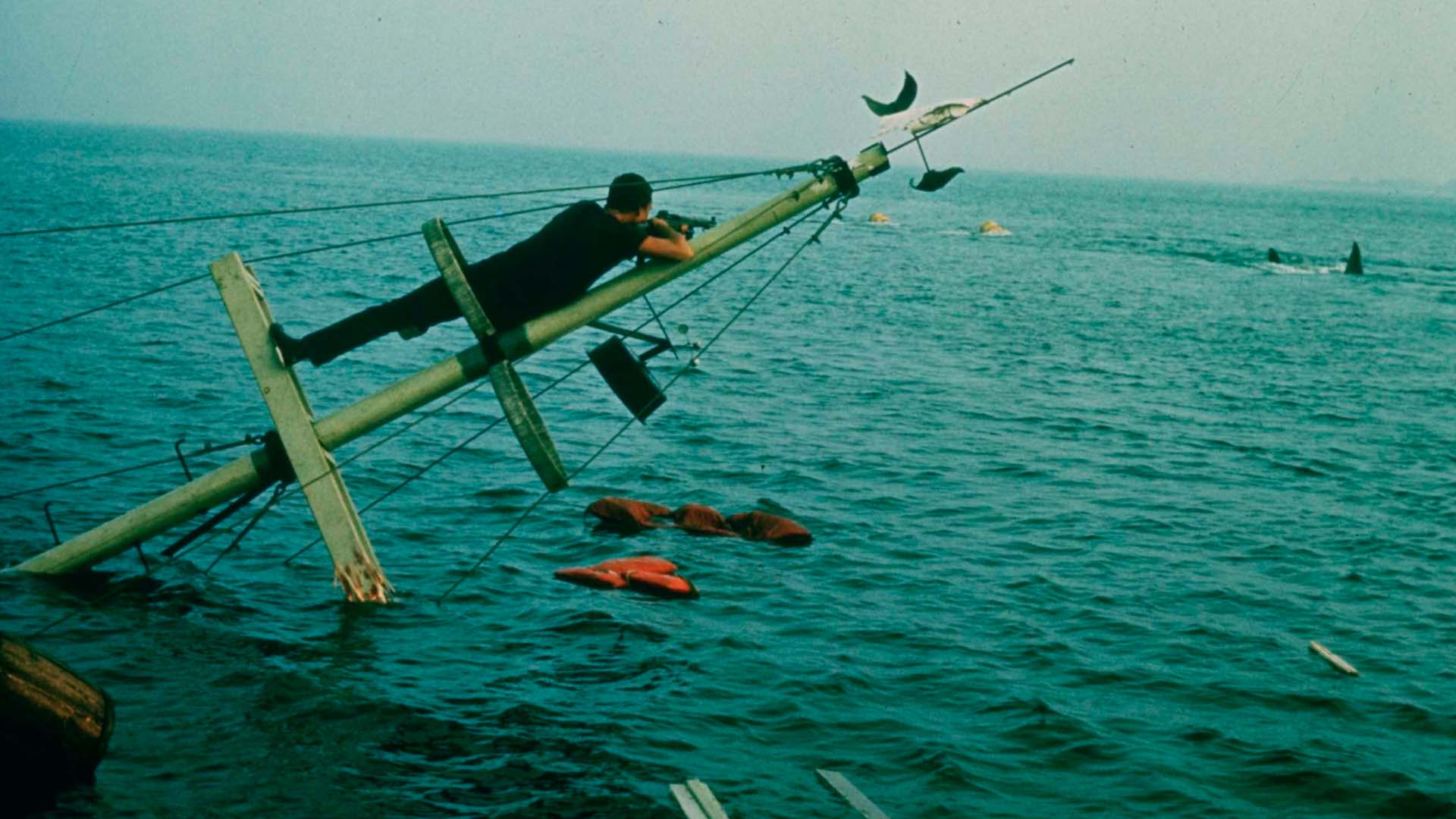Assistant Directors: Masterminds of film production and movie scheduling
The Assistant Director (AD) plays a crucial role in film production, particularly in movie scheduling. Their impact on the filmmaking process is immense, as they handle various responsibilities to ensure a smooth production.


In this article, we'll explore their key responsibilities, best practices, and some fascinating examples from filmmaking history.
Assistant Director responsibilities
The AD's pre-production planning and coordination are critical in establishing a solid foundation for a successful film. They are responsible for breaking down the script, which involves analyzing scenes and identifying production elements. This process helps the AD create a detailed shooting schedule.
For example, during the making of "Jaws", Steven Spielberg's AD, John Milius, had to coordinate complex shooting schedules involving numerous mechanical shark props, coordinating with special effects teams, and managing the unpredictable weather conditions at sea.

Budget management is another significant responsibility of the AD. They need to ensure that the production stays within its allocated budget, making necessary adjustments when required. Location scouting is an essential part of the AD's job, as finding suitable filming locations directly impacts the movie's visuals and storytelling.
In addition to these duties, the Assistant Director is also responsible for managing the cast and crew. They create call sheets and shot lists, ensuring everyone on set is informed and prepared.
“I can't imagine making a movie without him.” That's what Quentin Tarantino said about first Assistant Director William Paul Clark. In "Pulp Fiction", the AD played a crucial role in coordinating a complex nonlinear shooting schedule, handling a large ensemble cast, and managing the numerous locations used throughout the film.

Effective communication and problem-solving skills are essential for an Assistant Director. They must be able to address any issues that arise during production while ensuring safety on set.
Practices for Assistant Directors
Time management and on-set organization are vital for a smooth movie scheduling process. The AD is the glue that holds the production together, and coordinating departments and facilitating communication among them ensures that everyone is working toward the same goal.
Adapting to changes and maintaining a production timeline is another essential aspect of the Assistant Director's role. For example, during the making of "Titanic", James Cameron's AD, Jon Landau, faced numerous challenges, including managing an enormous cast and crew, coordinating complex visual effects, and dealing with unpredictable weather. Landau's ability to adapt and maintain a tight production timeline was critical in the film's success.

By utilizing tips for effective scheduling and crew management, an Assistant Director can greatly impact the efficiency of the film set. A famous example is the making of "Apocalypse Now", where AD Jerry Ziesmer had to navigate various setbacks, including typhoons, logistical challenges, and scheduling conflicts, which resulted in a much longer production timeline than initially planned.

Utilizing tools like Filmustage can streamline the planning process and help Assistant Directors stay organized throughout production. Implementing modern technology can assist in optimizing schedules, identifying potential conflicts, and enhancing overall communication.
The path to becoming an Assistant Director: Education, experience, and networking
Becoming an Assistant Director requires a combination of formal education, hands-on experience, and effective networking within the film industry. Although there isn't a single definitive path to follow, here are some steps to help aspiring Assistant Directors succeed in their careers:
- Formal education: While a degree is not always required to work as an Assistant Director, pursuing a formal education in film production, directing, or a related field can provide a strong foundation in the industry's key concepts and practices. Many universities and film schools offer specialized programs focused on various aspects of filmmaking, such as screenwriting, directing, and production management. For example, prestigious institutions like New York University's Tisch School of the Arts, University of Southern California's School of Cinematic Arts, and the American Film Institute (AFI) offer comprehensive film programs that cover essential topics like script analysis, budgeting, scheduling, and on-set procedures, all of which are crucial for an Assistant Director's role. Additionally, international schools like the National Film and Television School (NFTS) in the United Kingdom and La Fémis in France also provide highly regarded film education programs. By pursuing a formal education at one of these institutions or other reputable film schools, aspiring Assistant Directors can acquire the knowledge and skills necessary to succeed in the competitive film industry.
- Hands-on experience: Gaining hands-on experience is essential for aspiring Assistant Directors. One way to do this is by starting as a Production Assistant (PA) on film sets. This entry-level position allows individuals to learn the ins and outs of film production, observe how different departments work together, and understand the role of an Assistant Director firsthand. As they gain experience, they can progress to higher roles within the production hierarchy, eventually working their way up to the position of an Assistant Director.
- Networking and building connections: Building a strong network of industry connections is vital for aspiring Assistant Directors. Attending film festivals, workshops, and networking events can help individuals meet other professionals in the field, such as producers, directors, and experienced Assistant Directors. These connections can lead to job opportunities, mentorship, and invaluable advice from industry veterans.
- Union membership and training programs: Joining a film industry union, such as the Directors Guild of America (DGA) or a similar organization in their country, can provide aspiring Assistant Directors with access to professional development resources and standardized wage scales. Additionally, some unions offer training programs specifically designed for Assistant Directors, which can help them learn the necessary skills and gain practical experience.
Another option is to work on independent or student film projects, where individuals can take on the role of an Assistant Director in a smaller-scale production. This allows them to practice their skills and learn about the responsibilities of the role in a more hands-on environment.
In summary, the path to becoming an Assistant Director involves a combination of formal education, hands-on experience, networking, and potentially joining a union. By following these steps, aspiring Assistant Directors can build a solid foundation for a successful career in film production.
Assistant Director earnings: Factors influencing compensation and industry averages
Assistant Directors play a crucial role in the success of a film production, and their earnings reflect their level of experience, the type of production they work on, and the project's budget.
For an entry-level Assistant Director, the salary might start at around $35,000 per year, especially in smaller, independent productions. However, as they gain experience and establish a solid reputation within the industry, their earnings can increase significantly.
Experienced Assistant Directors working on high-budget productions, such as major studio films, can command salaries upwards of $100,000 per year. Factors that contribute to an Assistant Director's earnings include:
- Experience: The more experience an Assistant Director has, the higher their earning potential. A well-established AD with a proven track record of managing complex film productions is likely to be in higher demand and command a higher salary.
- Type of production: The size and scope of the film production can also impact an Assistant Director's earnings. Working on a big-budget feature film usually comes with a higher salary (around $70,000 to $150,000 per year) than working on a small independent film or a short film (approximately $35,000 to $60,000 per year).
- Project budget: The overall budget of a film project plays a significant role in determining the salaries of all crew members, including the Assistant Director. A project with a larger budget can generally afford to pay higher wages to its key personnel.
- Geographical location: The film industry's wages can vary depending on the location of the production. Major film production hubs like Hollywood, New York, and London often offer higher salaries (up to $200,000 per year for top-level ADs) than smaller cities or rural areas.
- Union membership: Assistant Directors who are members of a film industry union, such as the Directors Guild of America (DGA) or a similar organization in their country, may benefit from standardized wage scales and negotiated contracts that ensure fair compensation.
Assistant Directors' earnings depend on various factors, such as experience, project budget, and production type. A career in this field can be financially rewarding, especially for those who build a strong reputation and work on high-profile projects.
Conclusion
So, descent AD should obtain the following skills:
- Time management
- Effective communication
- Problem-solving
- Organization and coordination
- Adaptability and flexibility
- Attention to detail
- Leadership and team management
- Budget management
- Knowledge of film production processes
- Familiarity with script breakdowns and scheduling tools
The role of the Assistant Director in movie scheduling is crucial for efficient film production. By understanding their key responsibilities, employing best practices, and learning from fascinating examples in filmmaking history, an Assistant Director can ensure the production process runs smoothly, ultimately leading to a successful film.